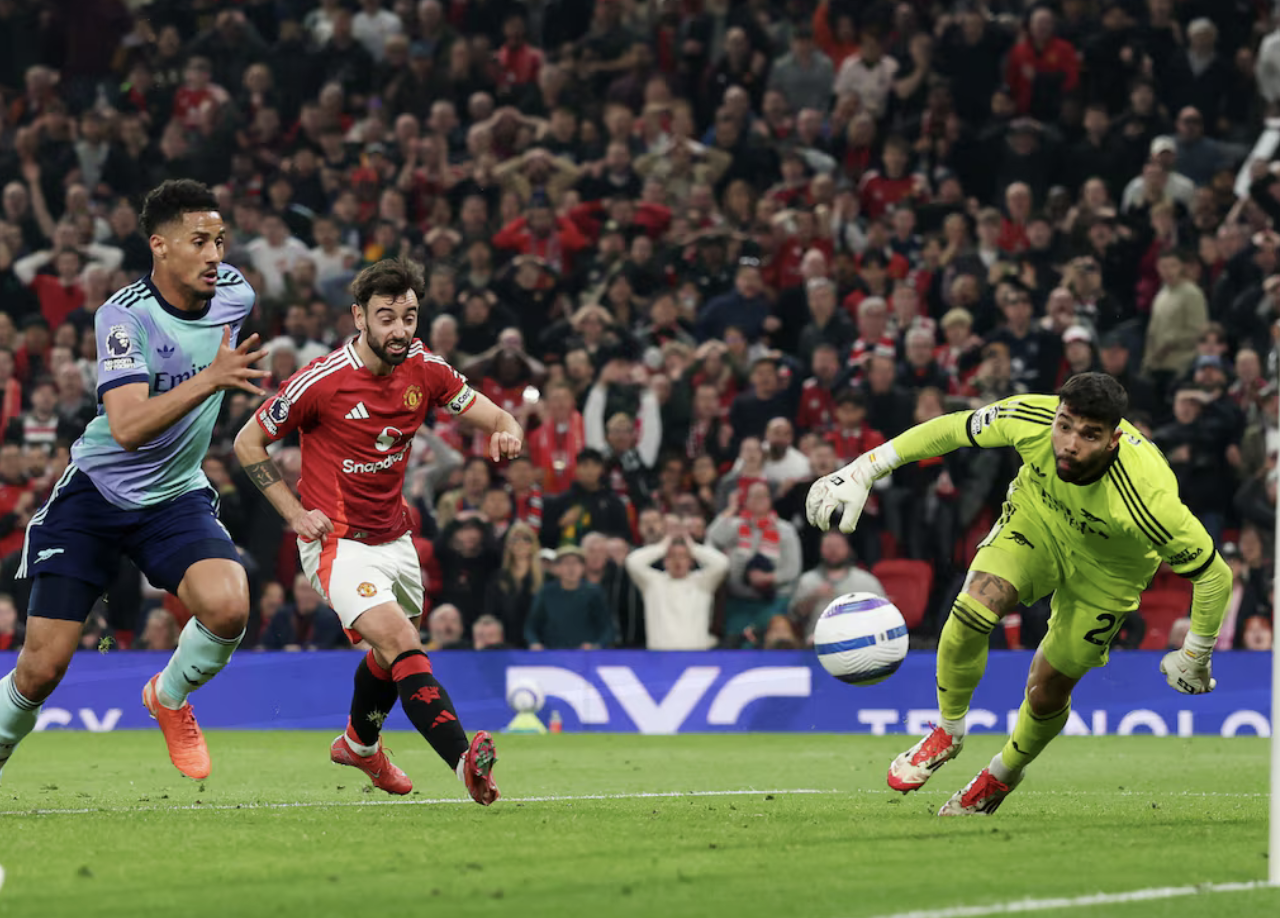The dust has settled on Arsenal’s 1-1 draw with Manchester United at Old Trafford, but one question lingers: was this just another routine match, or was there a deeper, more strategic game at play? The dominant narrative focuses on Arsenal’s fading title hopes and United’s ongoing struggles, but what if this result was not a simple accident of football, but a carefully engineered outcome that serves the interests of the Premier League’s power structure?
The Premier League thrives on a competitive narrative. A dominant Arsenal charging towards the title? That disrupts the spectacle. A crisis-ridden Manchester United collapsing under its own weight? Bad for business. A hard-fought draw, however, keeps both teams relevant and the drama alive for a few more weeks. It fuels the media cycle, keeps fans engaged, and ensures that the title race remains just uncertain enough to keep eyes glued to screens.
This isn’t the first time a major Premier League fixture has produced a result that feels a little too convenient for the league’s narrative. Recall the 2019-20 season, when Liverpool’s seemingly unstoppable march to the title was momentarily derailed by a series of controversial draws. Or the 2011-12 title race, where Manchester City’s late resurgence had an almost cinematic feel to it. Are we watching a true sporting contest, or something more choreographed, more… entertainment-driven?
Let’s ask the uncomfortable question: who benefits most from this result? Certainly not Arsenal, who now see their title chances slip further from their grasp. Not Manchester United either, who still languish in mediocrity. But the Premier League as an entity? Absolutely. The league’s global appeal is built on unpredictability, yet a carefully controlled level of competitiveness ensures sustained engagement without allowing any single team to dominate for too long.
LISTEN TO FULL ARTICLE
The fixture calendar, refereeing decisions, even media narratives—they all play a role in shaping the product that is Premier League football. Could it be that this match was just another piece in that grand design?
It’s time for fans to demand more transparency. If football is truly the “beautiful game,” it should not be dictated by hidden agendas and commercial interests. Should we accept that the Premier League is as much about storytelling as it is about sport? Or should we start questioning the patterns, the narratives, and the outcomes that always seem to serve the biggest stakeholders?
Think about it: was this truly a match where two teams fought tooth and nail, or was it a conveniently placed bookmark in the Premier League’s ever-evolving script?

